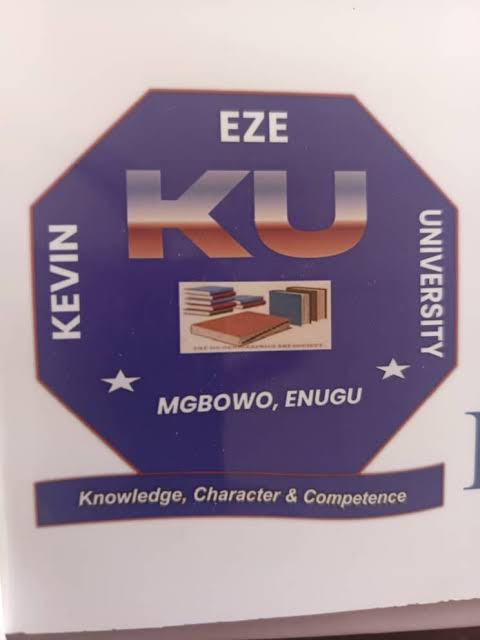By John Mayaki
In the final written address against the petition of Atiku Abubakar of the PDP and Mr. Peter Obi of the Labour Party, Chief Wole Olanipekun (SAN), who serves as counsel to President Bola Tinubu and Vice-President Kashim Shettima at the Presidential Election Petition Court, shed light on the issue of scoring 25% votes in the Federal Capital Territory (FCT), Abuja.
According to Olanipekun, the requirement of scoring 25% votes in the FCT is a crucial aspect of the electoral process. He highlighted the importance of interpreting this law correctly to ensure a fair and transparent presidential election.
Buy ROWE Engine Oil For Your Vehicle And Save Yourself A Whole Lot Of Stress.
Olanipekun clarified that the intention of the final written address was to emphasize the potential consequences of misinterpreting the law on 25% FCT votes and argued that a wrong understanding of this law could lead to anarchy, emphasizing the need for proper interpretation and application to maintain stability and uphold the integrity of the electoral process.
Below is the text
……..The other remote contention of the petitioners is that the 2nd respondent did not score 25% (or one-quarter) of the votes recorded in the Federal Capital Territory, Abuja (FCT); while the petitioners have also alluded to the respondent’s non-qualification, without any fact known to law”, Chief Wole Olanipekun, SAN, counsel to Tinubu had pointed out in the final address dated July 14. Both Atiku and Obi claimed INEC breached Section 134 of the Constitution when he announced Tinubu who did not score up to 25% of votes cast in the FCT in line with the law.
Section 134(2)(b) of the Constitution provides that:“A candidate for an election to the office of President shall be deemed to have been duly elected where there being more than two candidates for the election- (a) he has the highest number of votes cast at the election; and (b) he has not less than one-quarter of the votes cast at the election each of at least two-thirds of all the States in the Federation and the Federal Capital Territory, Abuja.”
According to the INEC results Tinubu was only able to garner 19% of votes in the FCT. He, however, argued that it was erroneous for the petitioners to call for the nullification of the entire election based on the FCT results.
Brand New Executive Hummer Bus With Powerful AC Available For VIP Car Hire Transport Services.
“While we have premised this issue on the combined reading of sections 134 and 299 of the Constitution, and section 66 of the Electoral Act, in the course of our arguments … t is apt to submit right from get-go that election is about votes and voters, and when votes and voters are mentioned in any part of the world, there is no superiority of votes or voters as all votes and voters are equal”, adding that there is no superiority between the votes from voters secured in either Lagos or Kano, which are the most populous States and Bayelsa, Ebonyi and Ekiti, which are the least populous States.
Olanipekun further argued that, while Section 3(1) of the Constitution specifically lists the 36 States by their respective names, the sidenote reads thus: “States of the Federation and the Federal Capital Territory, Abuja.”
Section 299, for ease of reference and clarity, provides thus: “The provisions of this Constitution shall apply to the Federal Capital Territory, Abuja as if it were one of the States of the Federation…” The phrase ‘as if’ has been defined in Corpus Juris Secundum, page 298 as connoting “in the same manner and to the same extent.”
“May we draw the attention of the court to the fact that there is no punctuation (comma) in the entire section 134(2)(b) of the Constitution, particularly, immediately after the ‘States’ and the succeeding ‘and’ connecting the Federal Capital Territory with the States.
In essence, the reading of the subsection has to be conjunctive and not disjunctive, as the Constitution clearly makes it so. Pressed further, by this constitutional imperative, the Federal Capital Territory, Abuja, is taken ‘as if’ it is the 37th State, under and by virtue of section 299 of the Constitution. “With much respect, any other interpretation different from this will lead to absurdity, chaos, anarchy and alteration of the very intention of the legislature.
Our courts have always adopted the purposeful approach to the interpretation of our Constitution, as exemplified in a host of decisions, including but not limited to Nafiu Rabiu v. State (1980) 12 NSCC 291 at 300-301, Marwa v Nyako (2012) 6 NWLR (Pt. 1296) 199, 306 – 307, ADH Limited v AT Limited (2006) 10 NWLR (Pt. 986) 635, 649, Awolowo v. Shagari (supra), Abraham Adesanya v. President, Federal Republic of Nigeria (1981) 12 NSCC 146 at 167-168; A.G Abia v. A.G Federation (2002) 6 NWLR (Pt. 763) 265 at 365.
“The petitioners themselves admit this much in paragraph 107 of their petition, where they listed the FCT as the 37th State, after listing the States mentioned in section 3(1), as numbers 1 to 36. Again, the maxim, res ipsa loquitur applies to the petitioners.
“Coincidentally, these sections of the Constitution were considered by the Supreme Court in the celebrated case of Buhari v. Obasanjo (2005) 13 NWLR (Pt. 941) 1 at 105 and the apex court held thus:“This provision appears clear to me. Where a candidate wins the highest number of votes cast in at least two-thirds of the 36 States in the Federation and the Federal Capital Territory Abuja, he is deemed to be elected …
I do appreciate any ambiguity in the provision and even if there was one, this court is bound to adopt a construction which is just, reasonable and sensible. (See Maxwell on the Interpretation of Statutes, 12th Edition, Chapter 10).
In my view, it would lead to absurdity and manifest injustice to nullify the election for the entire nation because of the nullification (sic) of the election of one State, some Local Government Areas, Wards and Units. Such a devastating result could hardly have been contemplated by the framers of the Constitution.
It is my conclusion therefore that the cancellation of the election in Ogun State and the other smaller components does not substantially affect the election of the 1st and 2nd respondents. In the event, this petition fails and same is dismissed with costs which I assess at N5,000 in favour of each set of respondents.”
The senior lawyer submitted that from the apex court’s judgment above, it could be seen, “That even if results of elections are canceled in more than one State (including the FCT), that election is not rendered invalid, provided, the winning candidate meets the constitutional requirements of one-quarter of the votes cast in two-thirds of the 37 States contemplated.
“Anything to the contrary would be devastating, and such was never contemplated by the framers of the Constitution.
“All the winning candidate needs is a majority of the votes, and even if there was no election in one State (including the FCT), or even if the election of a State/States (including the FCT) is/are voided, the entire election cannot be voided or canceled.
“In concluding our arguments on this issue, we urge the court to hold that any election where the electorate exercise their plebiscite, there is neither a ‘royal’ ballot nor ‘royal’ voter; and that residents of the FCT do not have any special voting right over residents of any other State of the federation, in a manner similar to the concepts of preferential shareholding in Company Law. We urge this court to resolve this issue against the petitioners and in favour of the respondent”, he pleaded.
In summary, Olanipekun’s statements in the final written address aimed to stress the significance of correctly understanding and implementing the requirement of scoring 25% votes in the FCT during the presidential election, highlighting the potential ramifications of misinterpretation.










